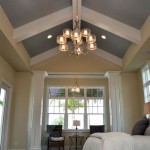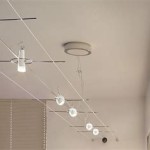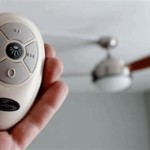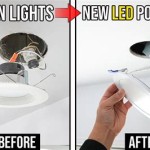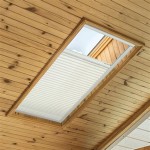Essential Aspects of Dim Ceiling Fan Lights
Efficient lighting is crucial for a comfortable and functional living space. When your ceiling fan light falls short of providing adequate illumination, it's essential to address the underlying factors contributing to its lack of brightness.
In this article, we will delve into the fundamental aspects that can impact the brightness of your ceiling fan light and explore potential solutions to restore its optimal luminosity.
Wattage and Bulb Type
The wattage of a light bulb directly influences its brightness. Higher wattage bulbs emit more light than lower wattage bulbs. Consider replacing your existing bulbs with higher-wattage options, ensuring they are compatible with the fixture.
Additionally, the type of bulb can also affect brightness. LED bulbs, known for their energy efficiency and long lifespan, often provide brighter illumination compared to incandescent or fluorescent bulbs.
Number of Bulbs
The number of bulbs in your ceiling fan light fixture plays a role in its overall brightness. If your fan has multiple bulb sockets, adding more bulbs or replacing them with brighter ones can significantly increase the light output.
However, it's important to ensure that the fixture can handle the additional wattage and that the bulbs are properly spaced to prevent overheating.
Light Diffusion
The design of the light fixture can impact how well the light is diffused and distributed throughout the room. If the fixture has an enclosed or opaque shade, it may obstruct the light and reduce its brightness.
Consider using a fixture with a diffuser or shade that allows the light to spread more evenly, enhancing the overall illumination.
Electrical Issues
In some cases, electrical problems can contribute to a dim ceiling fan light. Loose wiring, faulty switches, or a malfunctioning fan motor can all lead to reduced light output.
If you suspect an electrical issue, it's advisable to seek professional assistance to identify and resolve the problem safely.
Other Factors
Other factors that can affect the brightness of your ceiling fan light include the height of the ceiling, the size of the room, and the presence of natural light.
Adjusting the height of the fixture, using reflective surfaces to bounce light around the room, and maximizing natural light sources can all contribute to improved illumination.
Conclusion
By considering these essential aspects, you can troubleshoot the reasons why your ceiling fan light may not be bright enough and implement effective solutions to restore its optimal luminosity.
Whether you opt for higher-wattage bulbs, add more bulbs, or address potential electrical issues, addressing these factors can ensure a well-lit and comfortable living space.

How To Choose A Light Bulb For Your Ceiling Fan

Swap To Brighter Led Light In Ceiling Fan Doityourself Com Community Forums

How To Choose A Light Bulb For Your Ceiling Fan

Hampton Bay 11 In Warm And Bright White Light Universal Led Ceiling Fan Kit 53701101 The Home Depot

Most Common Ceiling Fan Problems

Hampton Bay Rothley Ii 52 In Indoor Led Broe Ceiling Fan With Light Kit Downrod Reversible Motor And Blades 52051 The Home Depot

Mainstays 42 Inch Downrod Ceiling Fan With Light Kit Satin Nickel 4 Blades Reverse Airflow Com

Mainstays 52 Inch Hugger Indoor Ceiling Fan With Light Kit White 5 Blades Reverse Airflow Com

Ceiling Fan Light Repair Home Tutor

Review Of Kdk Ceiling Fan Part
Related Posts


